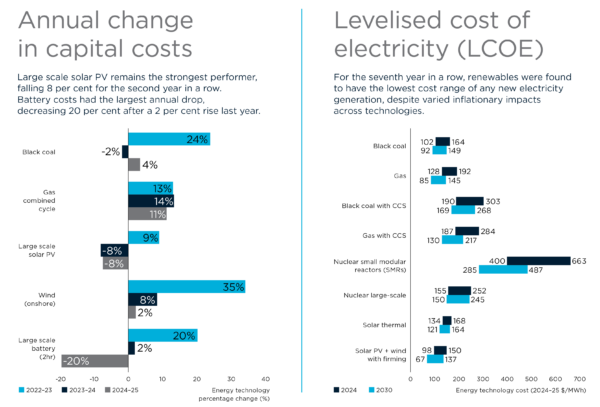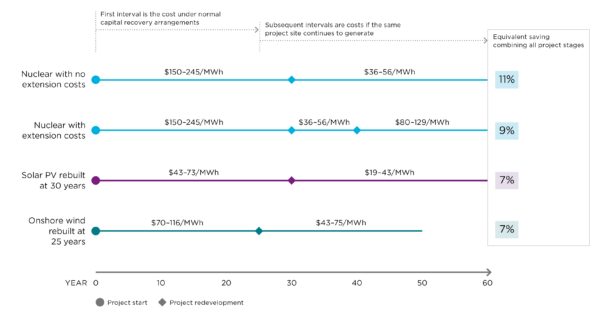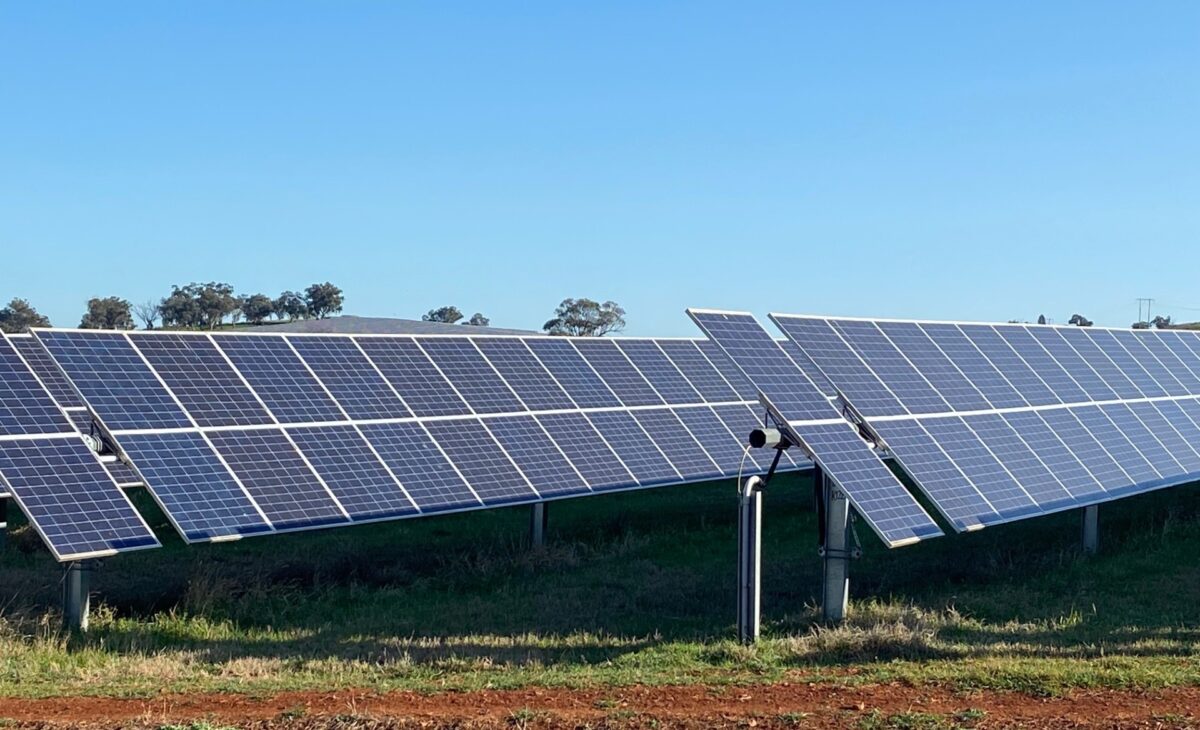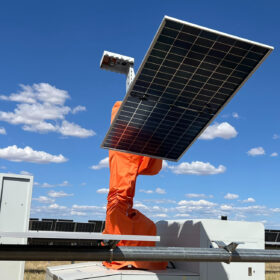Australia’s national science agency, the CSIRO has released its draft 2024-25 GenCost report, finding for the seventh year in a row renewables have the lowest cost range of any new-build electricity generation technology.
Though the impact of inflation on each technology’s unique raw material inputs and supply chains remains mixed, the report found large scale solar capital costs fell 8% two years in a row, and batteries recorded the largest annual reduction with capital costs falling 20%.
On the flip side, gas turbine costings increased 11%, reflecting the additional cost of being hydrogen ready and modelling nuclear’s long operational life factors across all new-build electricity generation technologies was found to present no unique cost advantage over other technologies.

Image: CSIRO
CSIRO’s Director of Energy Dr Dietmar Tourbier said GenCost provides objective cost benchmarks using the best available and verifiable data.
“GenCost’s annual update delivers data-based forecasts that support informed decision-making across the energy sector,” Tourbier said.
“Collaboration and transparency are central to this process, and the feedback we receive plays a vital role in ensuring our data and projections are relevant and impactful.”

Image: CSIRO
Feedback during the nine-week public consultation period ends on 11 February 2025 with the final GenCost 2024-25 report released in the second quarter of 2025.
GenCost presents capital, levelised and firming cost estimates of building new electricity generation and storage projects and hydrogen technologies up to the year 2050, which includes fossil fuels coal and gas, solar, wind, nuclear, bioenergy, hydrogen electrolysers and storage such as pumped hydro and batteries.
This content is protected by copyright and may not be reused. If you want to cooperate with us and would like to reuse some of our content, please contact: editors@pv-magazine.com.








By submitting this form you agree to pv magazine using your data for the purposes of publishing your comment.
Your personal data will only be disclosed or otherwise transmitted to third parties for the purposes of spam filtering or if this is necessary for technical maintenance of the website. Any other transfer to third parties will not take place unless this is justified on the basis of applicable data protection regulations or if pv magazine is legally obliged to do so.
You may revoke this consent at any time with effect for the future, in which case your personal data will be deleted immediately. Otherwise, your data will be deleted if pv magazine has processed your request or the purpose of data storage is fulfilled.
Further information on data privacy can be found in our Data Protection Policy.